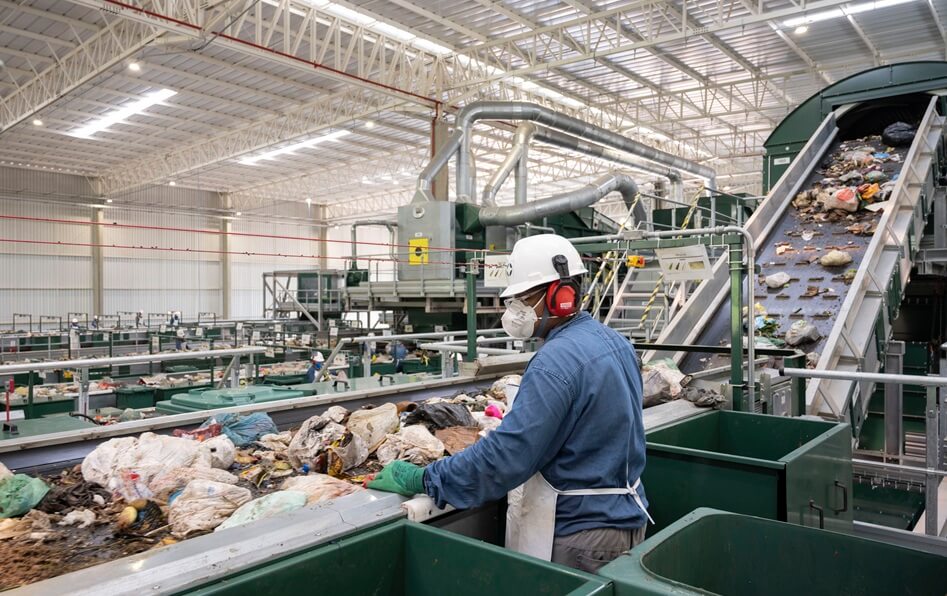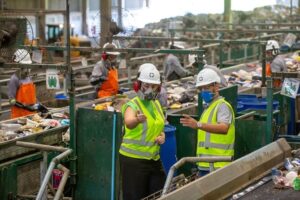
On February 13, 2023, Decree No. 11.413 was launched to improve the recycling system by valuing and encouraging the work of waste pickers and cooperatives, thereby repealing Decree No. 11.044, which had instituted Recicla+. Known as the Recycling Credit Law, this decree promotes reverse logistics to meet national environmental targets.
What is the New Recycling Credit Law, Decree No. 11.413
To regulate recycling in Brazil and promote the circular economy—reducing raw material extraction and the number of dumps—the country has invested in several regulations since the approval of the National Solid Waste Policy (PNRS), created in 2010.
Among several decrees and regulatory updates, in April 2022 Decree No. 11.044 was created, establishing the Recycling Credit Certificate (Recicla+), aimed at streamlining the recycling process, allowing waste-generating companies to pay collectors and recyclers to compensate for the mass of discarded products and packaging.
However, in 2023 this decree was replaced by Decree No. 11.413, which aims to give prominence to waste pickers, prioritizing them over other recycling operators such as private legal entities. As a result, three certificates were institutionalized:
CCRLR – Reverse Logistics Recycling Credit Certificate
“Art. 7 The CCRLR can be acquired by manufacturers, importers, distributors, and retailers to prove compliance with reverse logistics targets.” – DECREE No. 11.413, CHAPTER III, Section I
This certificate is a unique document showing that a company is committed to returning to the production cycle the equivalent mass of products or packaging it manufactures, which must go back to the manufacturer or recycling company.
CERE – Certificate of Packaging Structuring and Recycling
“Art. 9 Companies subject to reverse logistics that invest in structural projects for recyclable materials recovery may request CERE issuance.” DECREE No. 11.413, CHAPTER III, Section II
This certificate is issued to companies that develop infrastructure projects for the recovery of recyclable materials subject to reverse logistics, proving that over 50% of the packaging recovery is carried out through partnerships with waste pickers, cooperatives, associations, or entities working with recyclable material collection.
CCMF – Future Mass Credit Certificate
“Art. 10 Companies subject to reverse logistics that implement structural systems may request the Future Mass Credit Certificate.” DECREE No. 11.413, CHAPTER III, Section III
This certificate authenticates investments in systems that support the collection of post-consumer recyclables—i.e., from municipal solid waste—if social inclusion of waste pickers is demonstrated.
Advantages and Disadvantages of Decree No. 11.413
Main challenges for recycling in Brazil include:
- Lack of infrastructure and economic support to develop the recycling chain;
- Insufficient education and awareness among companies and the public about the importance of recycling;
- Lack of labor regulation for waste pickers and cooperatives, which are vital to Brazil’s selective collection system but still face informal work, impacting working conditions.
Therefore, the advantages of Decree No. 11.413 include encouraging the recycling economy and protecting workers from potential exclusion as the sector grows and attracts large players, while pushing companies to invest in infrastructure to meet reverse logistics targets, improve working conditions, and generate more value from each product.
How to Comply with the Recycling Credit Law
The Recycling Credit Law aims to help companies meet reverse logistics targets through the trade of credits issued by waste management companies like Orizon.
According to the Reverse Logistics Law, the goal is for every company to implement a set of actions enabling the collection, return, and proper environmental disposal of its waste. However, the law itself does not set fixed goals for each company—sectoral agreements define specific percentages. For example, the packaging market has set a 22% collection and recycling target.
To comply with the Recycling Credit Law, a company must purchase credits from a waste management organization with traceability and the ability to issue a compensation certificate.
At Orizon, the generation of Recycling Credits is fully approved for using post-consumer household waste. The process works as follows:
- Credit Origin: The sale of recyclable materials, with invoices issued, generates the recycling credit;
- Credit Validation: A third-party entity validates the recycling operation and sale data;
- Credit Sale: The credits are sold to companies that need to prove reverse logistics compliance.
The goal of recycling credits is to financially encourage the recycling chain, boosting the rate of return to the production cycle.
- Want to learn more about sustainable waste management models? Discover Orizon’s solutions, which enhance and add value to waste, generating positive environmental and social impact.



